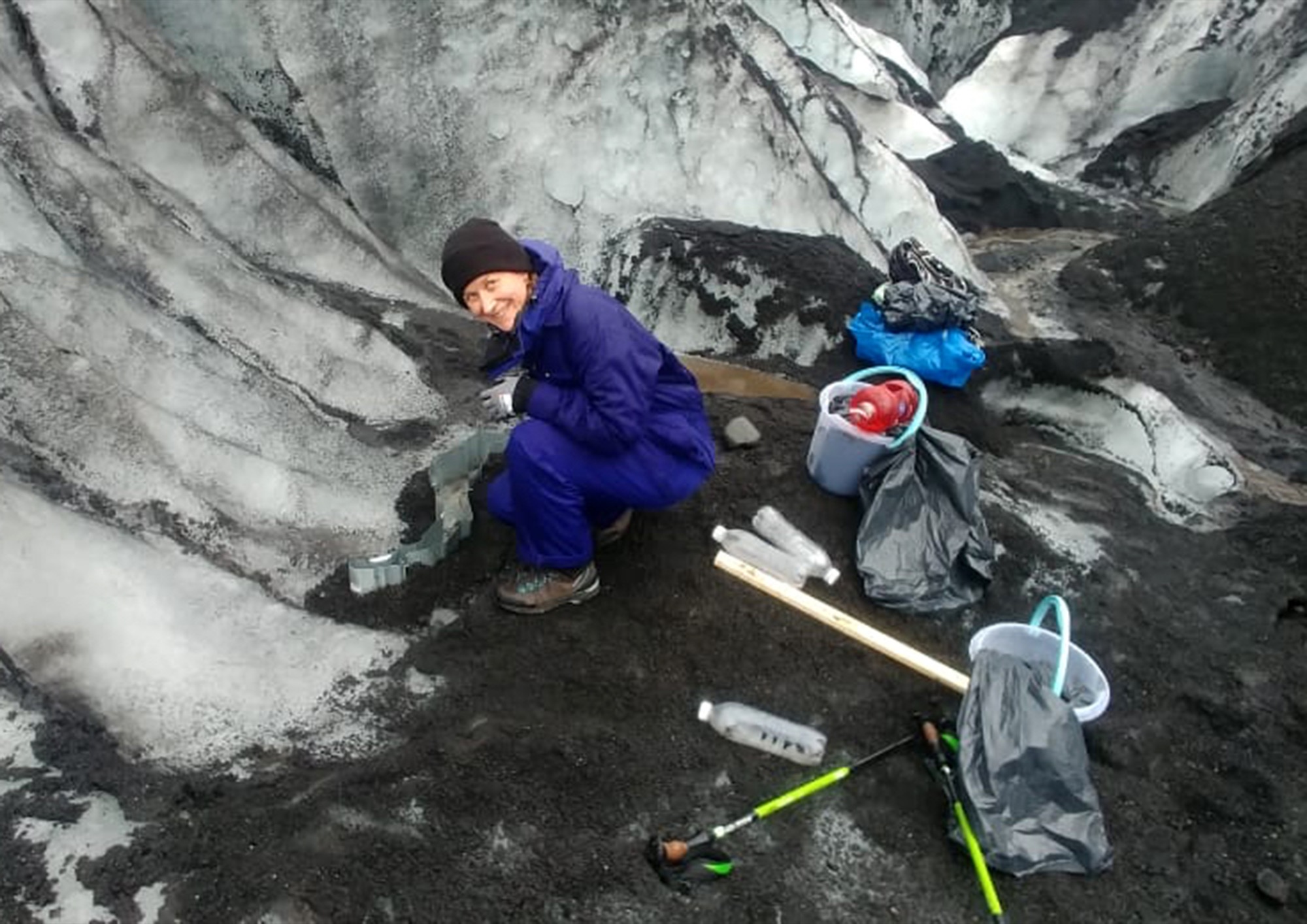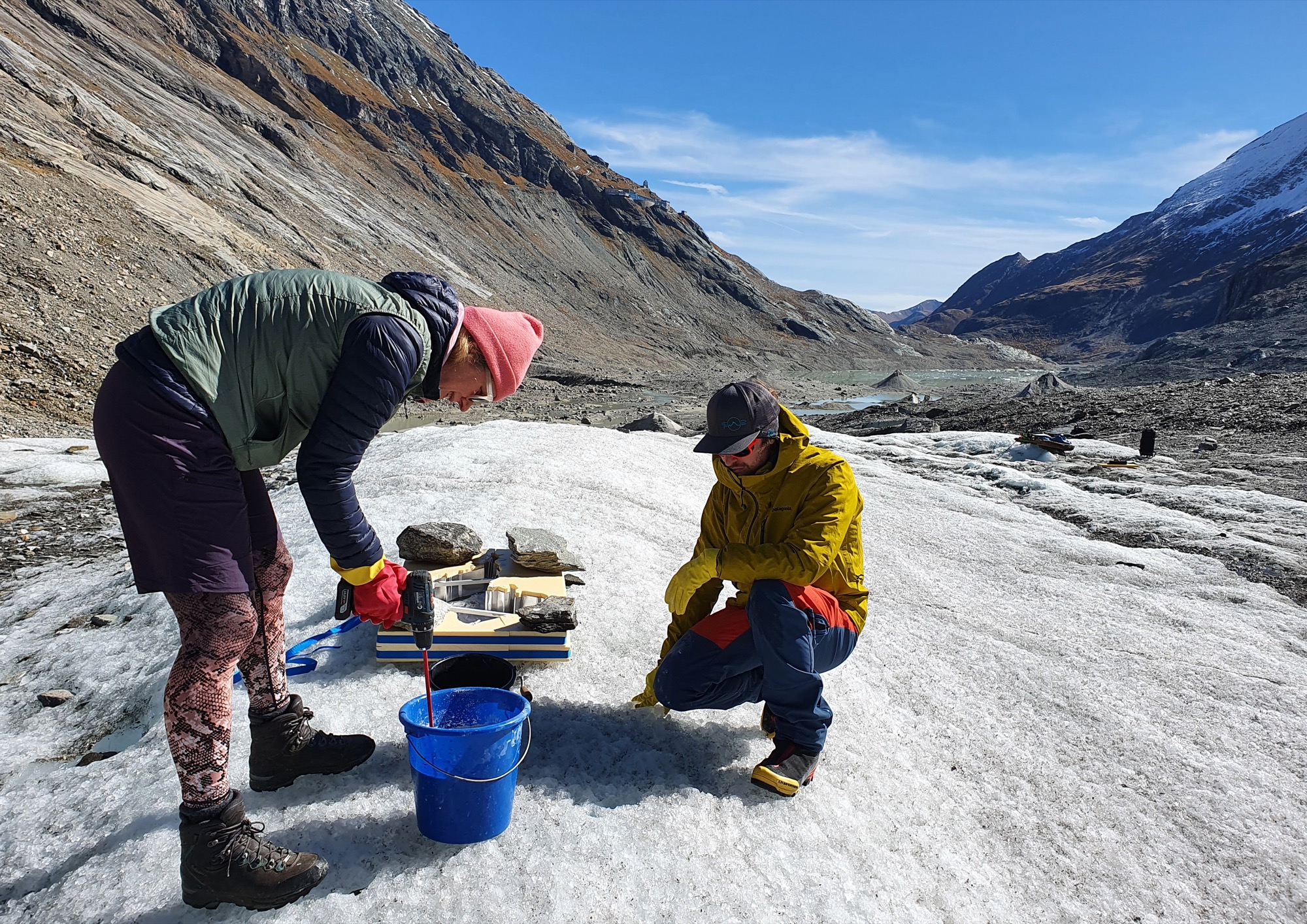2019 - ongoing ︎ Sólheimajökull
︎ Gepatschferner︎Schalfferner︎Pasterze︎Vermuntglacier︎Documentation
of the glacier-castings and of the research visits for The Archive of Disappearance































Sólheimajökull
(IS), 2019
Gepatschferner
(AT), 2020
Schalfferner
(AT), 2021
Pasterze (AT), 2022
Vermuntglacier (AT), 2023
Documentation of the glacier-castings and of the research visits
for
The Archive of Disappearance
2019 – ongoing
In summer 2019 I started working on my long-term project »The Archive of Disappearance« in Iceland: a collection of glacier castings. The glacier that I archived in Iceland is Sólheimajökull. It forms a glacier tongue of Mýrdalsjökull and it is the Icelandic glacier that is currently losing the most of its length and thickness each year since it melts the fastest.
In the summer of 2020, I moulded the Gepatschferner (Kaunertal, Tyrol) in Austria. The Gepatschferner was the Austrian glacier in the previous year that melted the fastest. In 2021, it was the Austrian Schalfferner (Ötztal, Tyrol) that I moulded in the fall of 2021. In 2022, I moulded the Pasterze (Hohe Tauern – Glockner Group, Carinthia) and in 2023 the Vermuntglacier (Silvretta, Vorarlberg) in Austria.
In the summer of 2020, I moulded the Gepatschferner (Kaunertal, Tyrol) in Austria. The Gepatschferner was the Austrian glacier in the previous year that melted the fastest. In 2021, it was the Austrian Schalfferner (Ötztal, Tyrol) that I moulded in the fall of 2021. In 2022, I moulded the Pasterze (Hohe Tauern – Glockner Group, Carinthia) and in 2023 the Vermuntglacier (Silvretta, Vorarlberg) in Austria.
For my archive, I make the outline mould of the glacier to be cast to scale. I then take the negative mould directly from the glacier in alabaster plaster. I bring this glacier surface cast to my studio in Vienna and transform it into a sculpture made out of white concrete.
I choose concrete as the material for the sculpture because cement production is responsible for up to 9% of all man-made CO2 emissions. There are two reasons for this: CO2 is released by the energy-intensive burning of the cement needed for concrete production, whereby the greater part of the emitted CO2 dissolves from the limestone as geogenic CO2 during the burning process.
I choose concrete as the material for the sculpture because cement production is responsible for up to 9% of all man-made CO2 emissions. There are two reasons for this: CO2 is released by the energy-intensive burning of the cement needed for concrete production, whereby the greater part of the emitted CO2 dissolves from the limestone as geogenic CO2 during the burning process.
This project was funded by a project grant of BKA - Section II - Art and Culture, Austria (2019) and by a two Work Grants of the Federal State of Tyrol, Austria (2020, 2021).